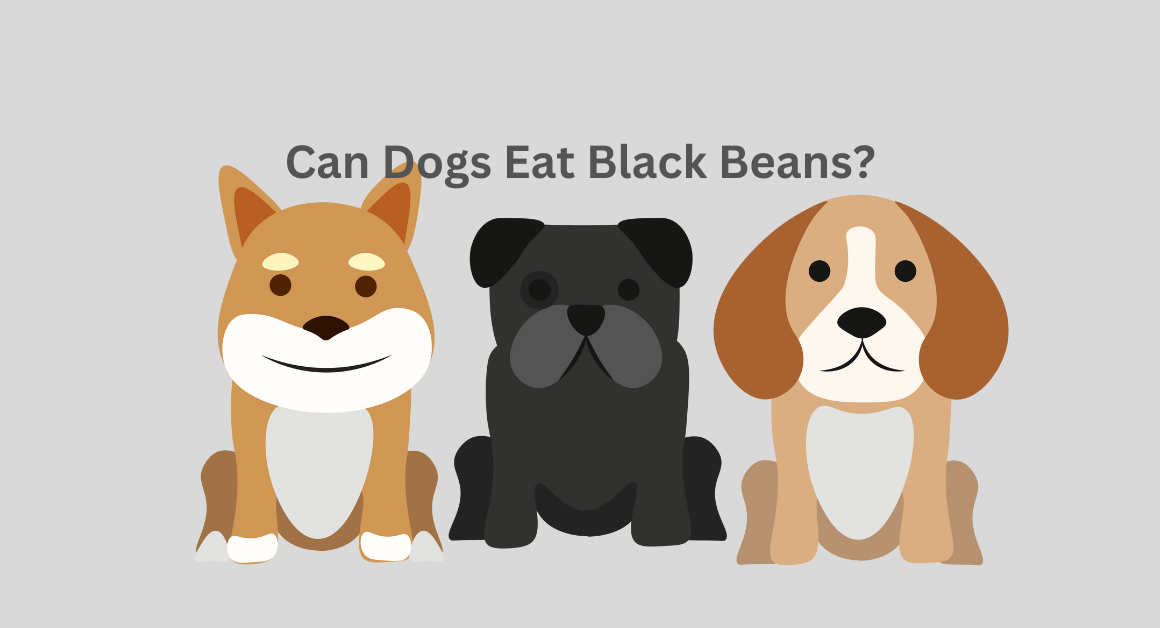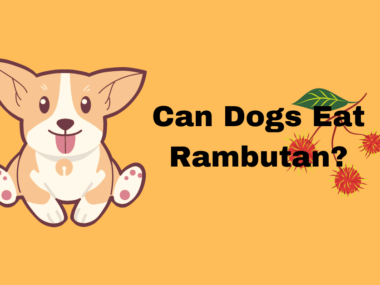Are you a dog lover who enjoys sharing your meals with your furry friend? It’s essential to consider the nutritional value and safety of the foods you offer to your canine companion. One common question that often arises is whether dogs can eat black beans. In this article, we’ll explore the topic in detail and provide the information you need to make an informed decision.
Table of Contents
Nutritional Value of Black Beans
Before determining whether black beans suit dogs, look at their nutritional profile. Black beans are a type of legume that offer various macronutrients and micronutrients. These little legumes are packed with protein, carbohydrates, and fiber. Additionally, they contain essential minerals like iron, magnesium, and folate.
READ: Can Dogs Eat Blueberries?
Can Dogs Eat Black Beans?
So, can dogs safely consume black beans? The answer is yes but with some considerations. It’s always best to consult your veterinarian before introducing new food to your dog’s diet. Each dog is unique, and factors such as dietary needs, health conditions, and allergies should be considered.
Safety of Black Beans for Dogs
In general, black beans are safe for dogs to eat. They are easily digestible for most canines and do not pose significant risks. However, it’s important to note that some dogs may be more sensitive to legumes or have specific dietary requirements restricting their consumption of certain foods.
Benefits of Feeding Black Beans to Dogs
Black beans offer several potential benefits when included in a dog’s diet. First and foremost, they provide a good source of plant-based protein. Dogs need protein for healthy muscle growth and repair. Black beans are also rich in fiber, which aids in digestion and can help regulate bowel movements. The fiber content may be particularly beneficial for dogs with gastrointestinal issues.
READ NOW: Can Dogs Eat Chicken Bones?
Risks and Concerns
While black beans have benefits, there are a few risks and concerns to consider. One concern is the high carbohydrate content in black beans. While carbohydrates are essential to a balanced diet, excessive consumption may lead to weight gain or blood sugar imbalances in dogs.
If you’re considering feeding your dog canned black beans, be cautious of the sodium content. Canned beans often contain added salt, which can harm dogs in large amounts. It’s best to opt for low-sodium varieties or prepare black beans at home without added salt.
Some dogs may experience gas or digestive issues after consuming black beans. If you notice any adverse reactions, such as bloating or discomfort, you should discontinue feeding your dog black beans.
Additionally, like any small and round food, black beans can pose a choking hazard, especially for small or toy breeds. It’s crucial to ensure that the beans are adequately cooked and mashed or cut into small, manageable pieces before serving them to your dog.
Preparing Black Beans for Dogs
If you decide to incorporate black beans into your dog’s diet, it’s essential to prepare them properly. Avoid using seasonings or additives such as garlic, onion, or salt, as these can harm dogs. Stick to plain, cooked black beans without any added ingredients. It’s also crucial to consider the portion size appropriate for your dog’s size, age, and activity level.
Alternatives to Black Beans
While black beans can be a healthy addition to your dog’s diet, there are other legumes and protein sources you can explore. Chickpeas, lentils, and kidney beans are some safe alternatives that offer similar nutritional benefits. Remember to introduce new foods gradually and monitor your dog’s response to ensure they tolerate them well.
SEE ALSO: Can Dogs Eat Bananas?
Conclusion
In conclusion, dogs can eat black beans as part of a balanced diet, provided there are no underlying health concerns or allergies. Black beans offer a good source of protein and fiber, which can benefit dogs. However, it’s essential to consult with your veterinarian and consider your dog’s needs before introducing black beans or any new food into their diet.
Remember, a well-balanced and veterinarian-approved diet is crucial for your dog’s overall health and well-being. By making informed decisions about their nutrition, you can ensure that your furry friend enjoys a happy and healthy life.
So, the next time you cook a delicious black bean dish, you can consider sharing a small portion with your canine companion. Just remember to prioritize their well-being and make choices that align with their dietary requirements. Happy dining for both you and your furry friend! Can Dogs Eat Radishes?




